Soaps make an essential commodity that comes into daily use. The Indian population, most of which is in the middle income group, looks for soaps, which are reasonably priced but are good in quality too. There are a number of leading brands of soaps in the Indian market, which satisfy the criteria people look for.
List of Top Selling Soap Brands in India
10. Hamam
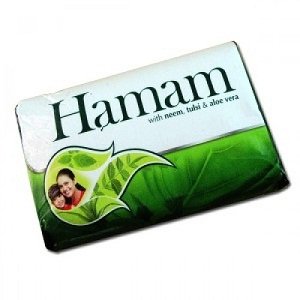 One of the oldest and most popular soap brands in India is Hamam, a product of Unilever. It is herbal soap, based on natural ingredients like tulsi, aloe vera and neem. These lend you smooth and fair skin without having any side effects like dryness and rashes.
One of the oldest and most popular soap brands in India is Hamam, a product of Unilever. It is herbal soap, based on natural ingredients like tulsi, aloe vera and neem. These lend you smooth and fair skin without having any side effects like dryness and rashes.
9. Lifebuoy
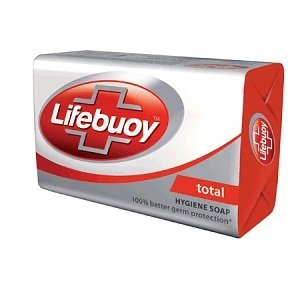 Lifebuoy is also a product of Unilever and one of the oldest soap brands in the India market as it dates back to 1895. This gives it a reputation of trust as it gives you healthy and germ free skin, without making it dull or dry.
Lifebuoy is also a product of Unilever and one of the oldest soap brands in the India market as it dates back to 1895. This gives it a reputation of trust as it gives you healthy and germ free skin, without making it dull or dry.
8. Medimix
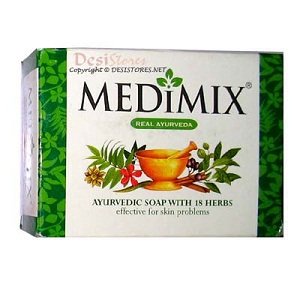 The next name on the list of top 10 best soap brands in India is that of the Ayurvedic soap called Medimix, which is a product of Chennai based company called Cholayil. The soap is made using potent herbal ingredients and makes your skin smooth and radiant.
The next name on the list of top 10 best soap brands in India is that of the Ayurvedic soap called Medimix, which is a product of Chennai based company called Cholayil. The soap is made using potent herbal ingredients and makes your skin smooth and radiant.
7. Cinthol
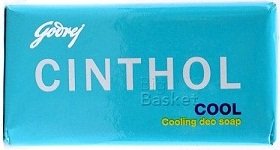
Cinthol is a product of the leading company called Godrej and is available in variants like Original, Cool, Deo and Strong. The brand has a fair share of the market because it provides lasting freshness and also makes your skin fair and beautiful.
6. Mysore Sandal Soap
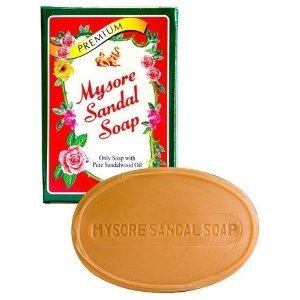
A product of Karnataka Soaps and Detergents Limited, Mysore Sandal Soap is another revered soap brand in India. This soap has the goodness of pure sandalwood oil, which makes it effective for gently removing dirt and grime from the skin and countering acne. It also lends a wonderful aroma and makes the skin fresh and glowing.
5. Santoor
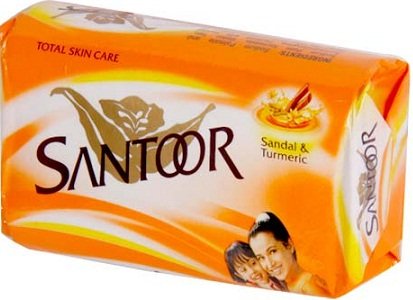
Another sandalwood oil based soap is Santoor, which is also enriched with turmeric and these ingredients work together to give you youthful and clear looking skin. A product of Wipro, Santoor Sandal soap has an avid fan following amongst women of all ages in India.
4. Dettol
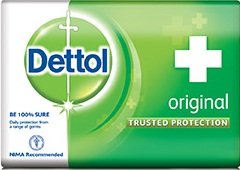
Dettol is a medicated soap brand, while is one of the oldest and most trusted in India. Available in a number of variants, this soap brand is known for its anti bacterial action and provides protection against bacteria and germs. It comes in Original, Skincare, Cool and Re-energize variants.
3. Pears

Featuring next on the list of top 10 best soap brands in India is Pears, a product of Hindustan Unilever Limited and one of the oldest runners in the Indian market. Pears is much acclaimed because it is soft and gentle on the skin and makes it radiant and moisturized without robbing the skin of its natural oils. The mild smelling soap bar is available in different variants for diverse skin types.
2. Lux
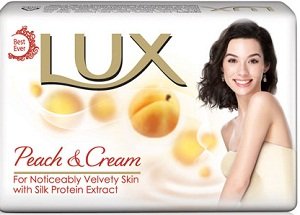
Lux is a soap brand which is known to each and every person in India because it is one of the best sellers in the country. It offers a great variety in soaps to cater to different skin types and is priced affordably too, which makes it the favorite soap in India. Again a product of Unilever, Lux has ruled the market for decades and carries the tagline of the beauty soap of film stars.
1. Dove
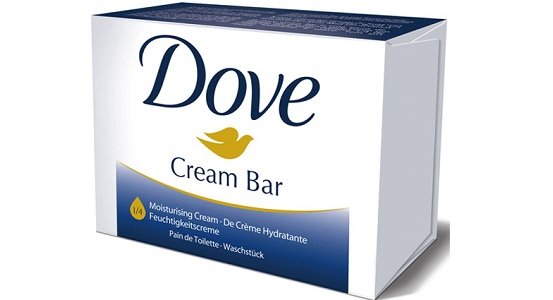
Dove is the undisputed leader amongst the soap brands available in the Indian market. Dove soap is formulated with moisturizing milk formula, which makes it gentle on skin. It comes from the trusted company Unilever and is ideal for all skin types, as it is effective for reducing dryness and at the same time, it does not make your skin oily and sticky.
Pick one of these soap brands for youthful skin along with freshness that lasts all day long.
How To Choose The Right Soap Brands in India
Considering the vast range of options available in the Indian market. With different brands, types, and claims, it’s essential to make an informed decision to ensure that the soap you choose is suitable for your skin type and preferences. Here are some factors to consider when selecting the right soap in India.
1. Skin Type: Understanding your skin type is crucial before picking a soap. In India, the climate varies from region to region, and different skin types may react differently to environmental factors. If you have dry skin, opt for a soap that contains moisturizing ingredients like shea butter or glycerin. For oily or acne-prone skin, look for soaps that are non-comedogenic and have ingredients like tea tree oil or salicylic acid to control excess oil and prevent breakouts.
2. Ingredients: Read the label carefully and pay attention to the ingredients used in the soap. Avoid soaps that contain harsh chemicals, such as sulfates and parabens, as they can strip the skin of its natural oils and cause irritation. Instead, choose soaps with natural ingredients like aloe vera, coconut oil, or neem, which are gentle and nourishing for the skin.
3. Fragrance: The fragrance of the soap can enhance your bathing experience. Indian culture is known for its love of aromatic scents. However, some fragrances can be overpowering or may cause allergies in some individuals. Opt for mild or natural fragrances that are pleasing to your senses without being overwhelming. Sandalwood, rose, or lavender are popular choices in India.
4. Ayurvedic Soaps: India has a rich tradition of Ayurveda, a holistic healing system. Ayurvedic soaps, made from traditional herbs and botanical extracts, are gaining popularity due to their natural and therapeutic properties. Look for soaps that contain ingredients like turmeric, neem, tulsi, or sandalwood, which have been used in Ayurveda for centuries for their skin benefits.
5. Allergies and Sensitivities: If you have sensitive skin or known allergies, it’s essential to choose a soap that is hypoallergenic and free from potential irritants. Look for soaps labeled as suitable for sensitive skin or dermatologically tested. Patch testing a small area of your skin before using a new soap is also recommended to check for any adverse reactions.
6. Price and Availability: Soap prices in India can vary widely depending on the brand and type. Consider your budget and look for options that provide good value for money. Additionally, ensure that the soap you choose is readily available in your area or online so that you can easily restock when needed.
7. Customer Reviews and Recommendations: Reading customer reviews and seeking recommendations from friends, family, or skincare professionals can help you make an informed decision. Genuine user experiences can give you insights into the effectiveness and suitability of a particular soap.
Remember, personal preference and experimentation play a vital role in finding the right soap for you. What works for one person may not work for another, so don’t be discouraged if you have to try a few different options before finding the perfect soap for your needs. Taking these factors into consideration will help you choose a soap that cleanses, nourishes, and protects your skin, leaving you feeling refreshed and rejuvenated after every use.
Soap Frequently Asked Questions
Q: How often should I use bath soap?
A: The frequency of using bath soap depends on personal preference and individual needs. Generally, it is recommended to use bath soap daily to cleanse the body and remove dirt, sweat, and bacteria. However, if you have dry or sensitive skin, you may choose to use soap every other day or alternate with a milder cleanser to prevent excessive drying.
Q: Can I use the same soap for my face and body?
A: It is generally not recommended to use the same soap for both your face and body. The skin on your face is more delicate and sensitive compared to the rest of your body. Facial skin may require specific cleansers formulated for its unique needs, such as those that are gentle, non-comedogenic, and pH-balanced. Using a soap meant for the body on your face may lead to dryness, irritation, or clogged pores.
Q: What is the difference between bar soap and liquid soap?
A: Bar soaps come in solid form and have been a traditional choice for bathing. They are generally more economical, have a longer shelf life, and are environmentally friendly, as they usually come with minimal packaging. Liquid soaps, on the other hand, are in liquid or gel form and often come in pump bottles. They are convenient to use and can be more hygienic, especially when shared among multiple people. Liquid soaps also offer a wider variety of formulations, including moisturizing or antibacterial options.
Q: What should I do if I have allergies to certain soap ingredients?
A: If you have known allergies to specific soap ingredients, it’s essential to read the label carefully before purchasing a soap. Look for soaps that are free from the allergens you need to avoid. Hypoallergenic soaps are formulated to minimize the risk of allergic reactions and are a suitable option for individuals with sensitive skin or allergies. Patch testing a small area of your skin with a new soap is also recommended to check for any adverse reactions before using it on your entire body.
Q: Can bath soap cause dryness or skin irritation?
A: Some bath soaps, especially those containing harsh chemicals or fragrances, can strip the skin of its natural oils and cause dryness or irritation, particularly in individuals with dry or sensitive skin. To prevent this, choose soaps that are specifically formulated for sensitive skin or those that contain moisturizing ingredients like glycerin, shea butter, or natural oils. If you experience persistent dryness or irritation, it may be helpful to consult a dermatologist for personalized recommendations.
Q: Can children use the same soap as adults?
A: Children’s skin is generally more delicate and sensitive than adult skin. It is advisable to use mild and gentle soaps specifically formulated for children, as these are less likely to cause dryness or irritation. Avoid using soaps with strong fragrances or harsh ingredients on children’s skin. Always supervise children during bathing to ensure their safety and to prevent soap from getting into their eyes or mouth.
Q: How should I store bath soap to prolong its shelf life?
A: To extend the shelf life of your bath soap, it is recommended to store it in a cool, dry place away from direct sunlight and excessive humidity. Keeping the soap dry between uses can prevent it from becoming mushy or melting quickly. You can use a soap dish or soap saver that allows the soap to drain and dry properly. Proper storage will help maintain the soap’s integrity and ensure its usability for a longer period.
Q: Are antibacterial soaps better than regular soaps?
A: Regular soaps, when used correctly, are effective in removing dirt, oil, and germs from the skin. Antibacterial soaps contain additional antimicrobial ingredients like triclosan or benzalkonium chloride, which are designed to kill or inhibit the growth of bacteria. However, there is limited evidence to suggest that antibacterial soaps are more effective in preventing illness or reducing the risk of infection compared to regular soaps. In fact, overuse of antibacterial soaps may contribute to the development of antibiotic-resistant bacteria. For most individuals, using regular soap and proper handwashing techniques is sufficient for maintaining good hygiene.
Santosh Kumar is a Professional SEO and Blogger, With the help of this blog he is trying to share top 10 lists, facts, entertainment news from India and all around the world.
